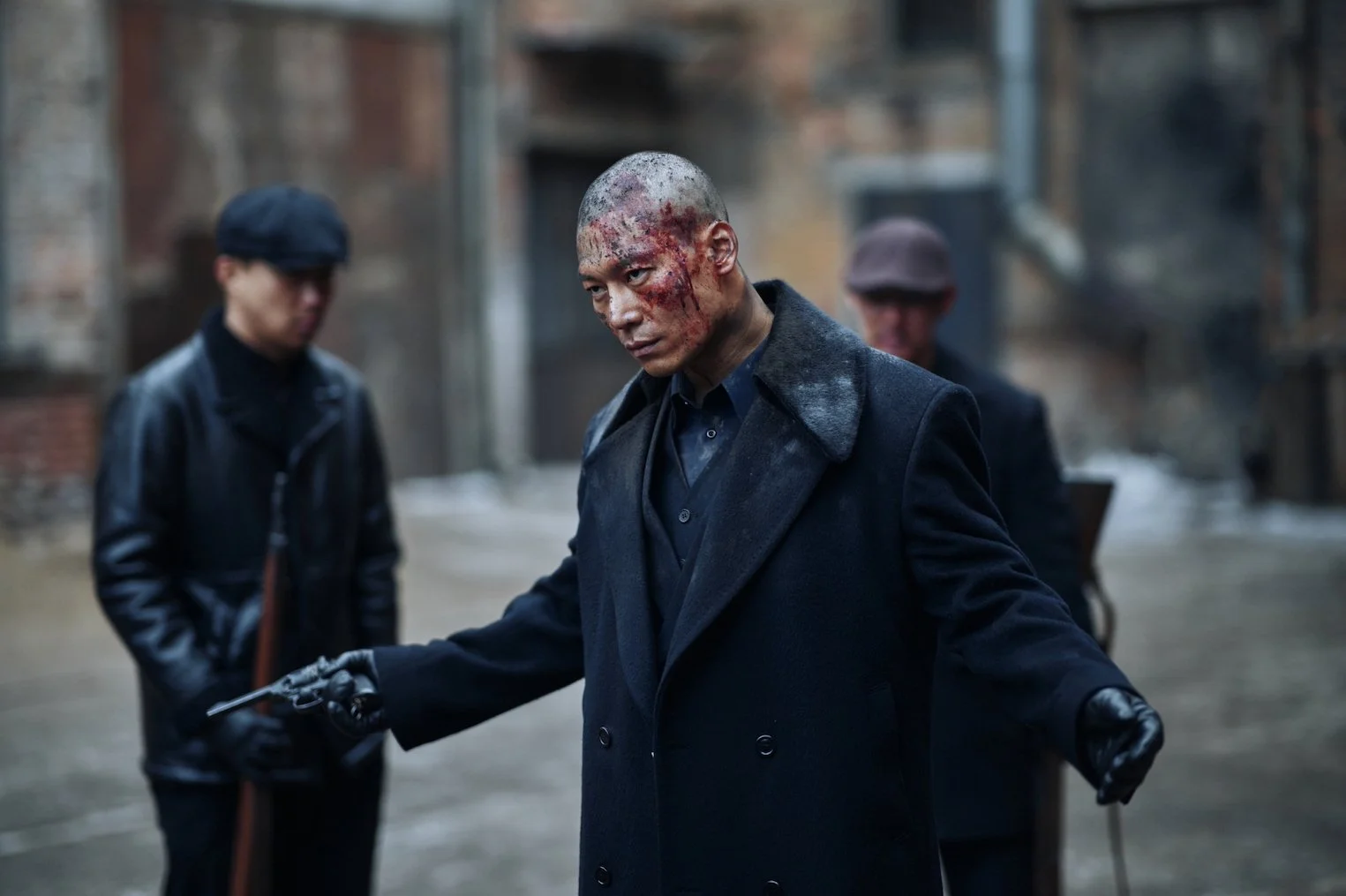Resistance Chic
Yup, it’s another stylish overcoat and fedora war thriller.
Harbin
Director: Woo Min-ho • Writer: Kim Min-seong, Woo Min-ho
Starring: Hyun Bin, Park Jeong-min, Jo Woo-jin, Jeon Yeo-been, Lee Dong-wook, Park Hoon
South Korea • 1hr 48mins
Opens Hong Kong April 17 • I
Grade: B-
Harbin | 하얼빈 is one of those historical thrillers whose aesthetic instantly identifies the period of history it unfolds in, and the specific Resistance-Occupier set at the centre of th story. Somewhere along the way, the code for these stories has become a language found almost entirely in heavy woollen coats, low-slung fedoras, dimly lit smoky rooms and swift, hushed shuffling through dark alleys and/or steam train carriages. A real stylist will throw in a light dusting of snow as a chic visual accent. The images lend a romance to the storytelling about a time that was actually anything but; it’s just hard for movies to make the brilliant sneakiness of resisters look anything other than flawless. This language isn’t new, but South Korean filmmakers have really perfected it recently. Think of Choi Dong-hoon’s Assassination, Kim Jee-woon’s The Age of Shadows – and Zhang Yimou’s Cliff Walkers, using the same code for a similar Chinese story a couple of decades later.
It’s into this specific murk and mire that The Man Standing Next director Woo Min-ho wades with a drama-thriller about the assassination of Japan’s first prime minister, Hirobumi Ito, in 1909, just after Korea was absorbed into the Empire. It’s a fascinating and alarmingly timely event that’s tragic for how it failed, even as the mission succeeded, but no matter how hard Woo tries, there’s something rote about Harbin that puts it in the lower half of the canon among its resisitance thriller brethren.
Harbin was a late-year hit at home in Korea, and – alert the media – it fired up the conservative right in Japan, who whined about it stoking hatred blah blah blah. Whatever those wingnuts think, the plot to eliminate Ito and free Korea from occupation makes for a rip-roaring wartime tale, even with (highly likely) dramatic license deployed. As recreated by Woo and co-writer Kim Min-seong (The Roundup) the action starts in the wake of a brutal fight between Korean resistance groups led by Ahn Jung-geun (Hyun Bin, The Point Men, Confidential Assignment: International) and a Japanese army detachment commanded by Tatsuo Mori (Park Hoon). While Ahn tries to make his way home, his fellow freedom fighters are huddled in a smoky room wondering where he is and questioning his loyalty. When he does get back, his refusal to execute Mori after the battle has cost him the confidence of his team, and so he decides to redeem himself by assassinating Ito (Lily Franky). With the untrusting Lee Chang-sup (Lee Dong-wook), Woo Duk-soon (Park Jeong-min, Decision to Leave) and Kim Sang-hyun (Jo Woo-jin, Alienoid) in tow, Ahn heads out to find the people, gear and information he needs to take Ito off the board and force Imperial Japan to reconsider its Korea position. While he’s doing this, Mori has been tipped off to the plot and is tracking Ahn down. Ahn letting him live after their first battle did him a dishonour so this time it’s personal.
DOP Hong Kyung-pyo (Parasite) cleaves closely to the resistance thriller rules of engagement, capturing the action in icy blues and retro sepia browns in epic widescreen that serves the epic set pieces – like the snowy forest of the grisly opening fight, the turn-of-the-20th-century cobbled streets and appropriated spaces of empire. But Woo spends so much time establishing these milieu he forgets to fill in the details that make the people inhabiting them real. Okay, we get it, retired resistance leader Park Jum-chool (Jung Woo-sung in what’s practically a cameo) is scarred by the fight – literally and figuratively – but we only understand that because he tells Ahn’s explosives contact Ms Gong (Jeon Yeo-been, Dark Nuns) that in so many words. Harbin’s script is exposition heavy when it’s not basking in vast landscapes (it take so long to ride to Park’s location because horsies!) or hand-waving the action in order to get from A to B. This is prime “handsome” filmmaking; well-produced with gorgeous production design and a solid cast that manages to elevate the by-the-numbers material without ever telling us something new about an important chapter in Korea’s past or reevaluating it for a modern context.



